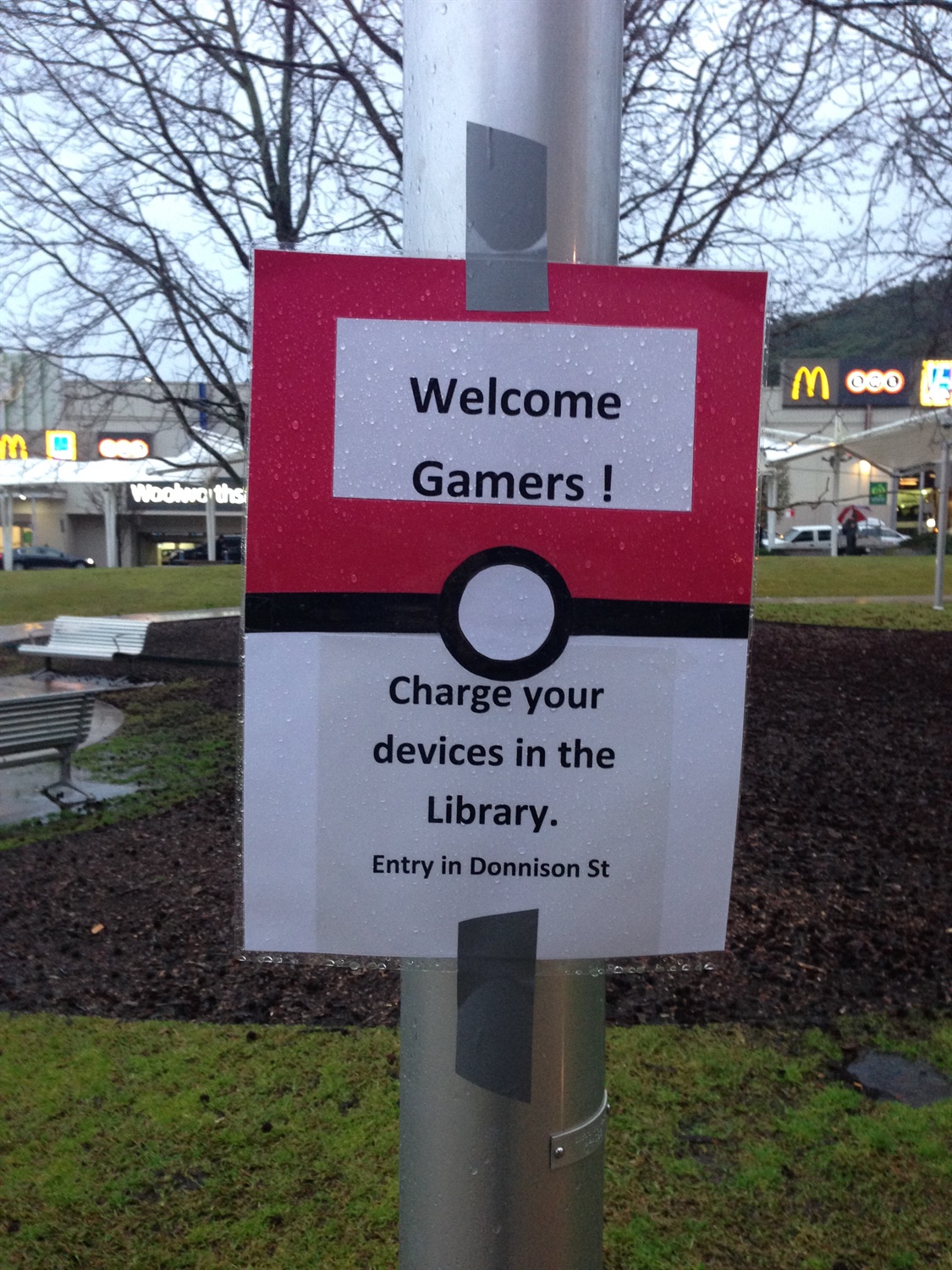28.07.16
What can Pokémon Go do for your council and community?
I’m sure you’ve seen all the headlines over the past few weeks confirming that Pokémon Go is the newest craze across the UK. It’s hard not to notice it when so many people have started stumbling into you when walking down the street because they’re too engrossed in their phones whilst playing Niantic’s trailblazing – and somehow also nostalgic – Artificial Reality game.
But beyond just excessive phone use and increasingly drained batteries, there’s something in that game for everyone. For local authorities, it offers a wide breadth of fresh and exciting opportunities to capitalise on the new obsession in order deliver something positive and – believe it or not – healthy for the population.

Reconnecting with libraries
Take libraries, for example. Albeit one of the cornerstones of publicly-funded cultural enterprise, they have truly bore the brunt of council cuts in the past few years, resulting in closures and redundancies. But even further than that, many are still unable to learn from newer generations and innovative technology in order to revitalise public interest in their spaces and what they can offer.
No longer. The new free Pokémon Go app, which enables users to “collect” the beloved Japanese pocket monsters located across a city sprawl, has a neat catch: many of its virtual “Gyms”, or where Pokémon players go to battle against other Pokémon collectors and earn badges, are located in libraries.
Whether they’ve agreed to this or not, thousands of libraries are now the home to countless virtual Gyms, the only location where Pokémon trainers can go to strengthen their monsters and convene with other players. This offers councils a whole new range of opportunities to reconnect with its long-lost public through diverse new programmes that can make libraries a more inviting place to come to ‘battle’ – and to stay for a meet-up afterwards.
An easy way local authorities can take advantage of this from day one is making sure players know they’re welcome in. Some librarians have reported online that they’ve noticed groups of teenagers and adults come in, walk quickly through the main circulation area, awkwardly zig-zag around shelves, and walk out after they’ve accomplished what they came for. To remedy this, they have been setting up large themed displays outside to greet players before they come in, as well as crafting themed badges they can hand out to players who prove they’ve won a battle at the Gym.
 Image c. galaxybookjockey.tumblr.com
Image c. galaxybookjockey.tumblr.com
 c. Doug Beckers, Flickr
c. Doug Beckers, Flickr
Eventually, as the game’s server gets used to the mammoth amount of people playing at once, Pokémon trainers will also be able to battle each other anywhere – not only in Gyms. While this may eventually divert attention away from libraries, it will again offer councils the opportunity to lure players to points of interest, encourage greater integration between council services and public users, and use social media to invite players to self-hosted meet-ups that can ultimately help tear down barriers between councillors and their communities.
Encouraging public health
Another major focal point is the game’s healthcare potential. Because it is powered by Artificial Reality tech and GPS connectivity, the app effectively forces you to walk around in order to discover the Pokémon hiding in your locality. Some of its features also entirely rely on walking: you can incubate ‘Pokémon eggs’, for example, that require players to walk two, five or even 10 kilometres before the egg can hatch.
This is effectively the holy grail of public health. What many local authorities have been trying to do for years with countless health initiatives to get people walking, Pokémon Go has achieved in one fell swoop. Children, teenagers and even adults who play the game are forced to leave the house, walk through parks, hunt for rivers and lakes to find ‘Water-type’ Pokémon, and tread new ground to discover new types of monsters they haven’t already collected. It comes as no surprise that so many local businesses and public locations have begun reporting increased amounts of ‘foot traffic’ already.
This in itself represents a great step forward to public health as a whole, with many people engaging in outside activity they wouldn’t have done otherwise. Staying fit – and walking the NHS-recommended 10,000 steps a day – has finally become fun.
But how can councils capitalise even further on this? An easy solution is hosting meet-ups, hikes or trails through the city – think art circuits, but with virtual monsters instead. Local authorities can also stimulate communities to get together at the weekend and go searching for Pokémon together, offering badges and social media buzz as rewards; they can partner with charities to raise money for public health causes during Pokémon-hunting events; they can host public competitions or weight loss-based Pokémon races; engage school children in outdoor activities; and even make Pokémon-based mental health campaigns that highlight the benefits of exercise and social interaction to issues like depression, anxiety and agoraphobia.
The new game craze might not be a panacea to childhood obesity or prevention initiatives, but don’t let its benefits pass you by – once the initial discomfort with what seems like a Zombie-struck mass of young people attached to their phones quiets down, make sure to start making the most of what the revolutionary game has to offer.